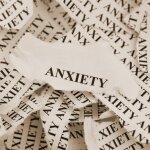
As babies and preschoolers, naps are heavily incorporated into our day. In fact, many cultures including Spain and Japan integrate naps as a part of self-care. As more people realize the benefits of short power naps, even more companies are starting to realize the importance of a worker that is not sleep deprived.
It is important to keep naps short. Long naps can leave you irritable and possibly interfere with nighttime sleep. The National Sleep Foundation recommends no longer than 30 minutes. These naps boost mental alertness, enhance memory and improve mood. A nap taken seven to nine hours after you wake up is the best way to prevent interfering with your regular nighttime sleep.
Studies have shown that people who nap regularly are likely to have hormonal balance. This means that they are less vulnerable to the negative effects of the stress hormone cortisol. Naps increase problem solving performance and creativity.
Here is how to get the most of your nap:
- Less is more. A 20-30 minute nap offers significant mental health benefits that longer naps may not provide. Naps longer than 30 minutes often leave a feeling of grogginess and increased irritability.
- Pencil it in. It is important not too wait too long to take your nap. Struggling to stay awake reduces productivity, and may lead to long, uncomfortable naps with less reward.
- Lose the stigma. We are trained to avoid napping out of the fear we may seem lazy, however knowing how to effectively nap and embracing this self-care routine can provide tremendous mental health benefits.
- Keep it cool. A key part of napping is falling asleep as quick as possible. Find a quiet, cool and dark room to help stimulate sleep and help you get the most of nodding off.
























































